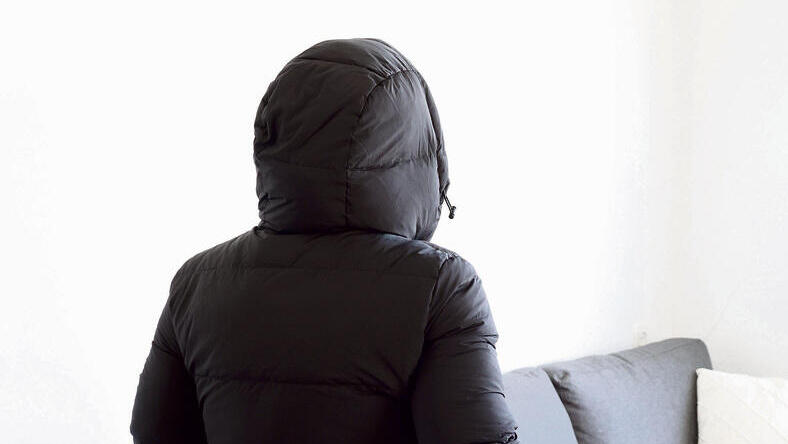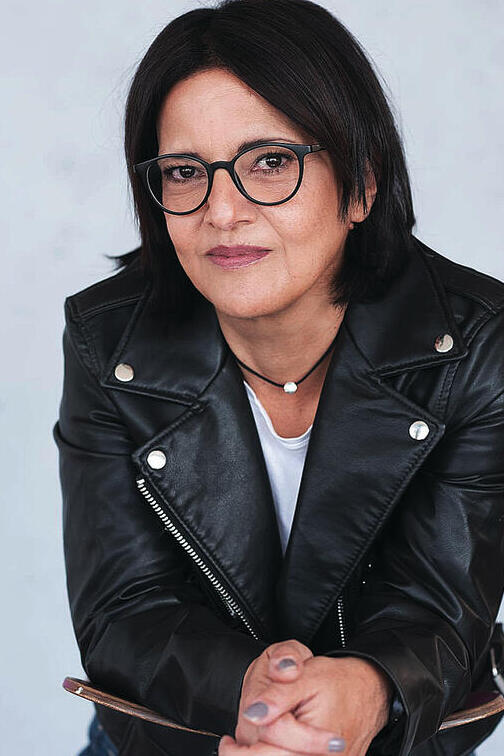Getting your Trinity Audio player ready...
Rotem was in a violent relationship for over a decade. "The physical violence began when I was pregnant with my youngest son, but today I can say it was there from the first time we met," she says. "Isolation, control, jealousy. He had a need to approve everything I did. Economic, verbal and general violence, throwing things, it was all there, I just didn't know how to identify it."
She says it began with testing the limits of verbal violence. "The more I let him speak to me badly, the louder our fights, the contempt, the belittling and humiliation around friends, grew. He made me dependent on him. Who would have me? He would ask. What was I worth without him? I found myself trying to change my patterns of behavior and was sure I was the problem," Rotem says.
Like many women who deal with quiet violence, Rotem failed to see the signs or the danger, at first. "In quiet violence, red lines are constantly crossed. There is a slow development, almost unnoticed. When the story of Shira Isakov who was almost murdered by her husband made headlines, I noticed warning signs that I had been missing."
Rotem says over time she came to realize her life was in danger. "In every fight he would threaten to slap me and I though to myself it would be better if he would just do it and give me a reason to leave, she says. "Getting slapped hurts for a bit and then it passes but the quiet violence shakes your entire subconscious," she says. "He knew all my sensitive spots. You begin to distrust yourself, have less faith in those around you, become suspicious. Those are things that need years to get over. They leave scars on your soul."
After her second son was born Rotem realized she was not only giving up on herself, but that there were other people who need her. "I decided to split up but then the threats began. He said he would kill me. This made me walk on eggshells everyday just so that I would not say anything that would set him off."
She was considered at high risk and went with her children to a shelter for battered women. "It got worse. He would cover my mouth to keep me from screaming, pour water on me and throw food I made into the trash. He would lock me out of the house, hide my car, hide my credit card, throw chairs, plates, glass bottles at me. The house was a broken mess."
Although public awareness of the various forms of domestic violence has increased, many women still fail to recognize the danger that they are in. "It sounds illogical that a grown person can enter a violent relationship and not understand that they are being treated violently," Efrat Harel Heiman, a clinical psychologist and head of the Marva Law, Welfare and Empowerment Institute, explains. "Violence can be physical, sexual, emotional and verbal. Usually such cases involve prolonged violence so I think it would be right to describe it as hidden abuse."
She says these situations can escalate to physical abuse. "The quiet violence is below the surface. Usually such relationships begin seeming fine and that is a trap that makes the victim believe they are in a good and beneficial partnership. The abuse begins slowly when the victim is already reliant on the abuser. Physical violence could follow and expand in form, over time. The more the abuser feels their victim is submissive, the more they reveal their darker sides."
Liora, a mother of three young children, knows that reality well. "I was in a toxic relationship for nearly 10 years. I have a career, I am well educated, and I am not a stupid person, despite my partner telling me that I am. I thought he would change, for me. I thought I would be good for him. Today I know I failed. You cannot help someone who does not want to help himself."
She says the violence began early on. "When we were dating, he would throw things, and once even kicked the wall in. He would punish me. Once he left me on the side of the road and drove off because he didn't like how I behaved. I could have called a friend for help but was embarrassed, so I waited for him to come back," she says.
"He always made me feel I was at fault and that he only behaved like that with me. I was sure he was the one for me and that it would be wrong to leave him because of my wrongdoings. I told myself I could change, and that I would work hard to be worthy of him.
Liora says she could not name what she was going through at first. "We married quickly when I became pregnant. During our marriage he would spit on me, humiliate and belittle me. We hardly went to social gatherings because I was afraid people would see his outbursts. I lived an unstable life with temper tantrums, and could not make plans because I would never know what mood he would be in."
When the physical abuse began, Liora decided to end the relationship. "He grabbed on to me and kicked me. That was the turning point. I left home for a while, but he promised he would never do that again and that he would begin treatment. That fizzled out over time. After the second time he was physically violent, I stopped sleeping in the same bed. I was terrified. I went to the police and we split up. But from that point it just got worse," she says.
Get the Ynetnews app on your smartphone: Google Play: https://bit.ly/4eJ37pE | Apple App Store: https://bit.ly/3ZL7iNv
"He would break into my house and make threats. He was arrested a couple of times and let go. They thought this was a bad divorce and did not understand that he was a psychopath. In the end his threats became more concrete and I was considered in danger. He was arrested and I was sent to a shelter with my kids."
Liora says quiet violence has no signs and people fail to see they are in that kind of a relationship. "When I woke up to reality, I asked for a restraining order because I was afraid of him. The judge asked me why I only came now if I was so scared? That to me was the hardest part because when you are beaten physically, it leaves marks, which make it easier for those around you to see and identify the situation. When there are no physical marks, its harder to explain."
Vardit Danziger, CEO of No To Violence Against Women, says quiet violence is dangerous and has severe repercussions. "It is serious violence. We see more and more women in our shelters who deal with it. It wounds the spirit and can cause trauma, PTSD and anxiety. It is hard to recognize when you are in such a relationship but when you do, it is hard to convince others of it."
"I think it is time that this matter receives more attention and not only in public discourse. Courts and the police must also recognize it. In France, for example, there is a law that recognizes quiet violence as any other type of violence, but in Israel, the law recognizes physical but not emotional violence, which makes it hard to prove in court," Danziger says
But there is hope. "Awareness is growing and I think we are on the way to recognition of this type of violence, although we are still far from providing an adequate response to it. I believe we must begin with education. That will bring change."




